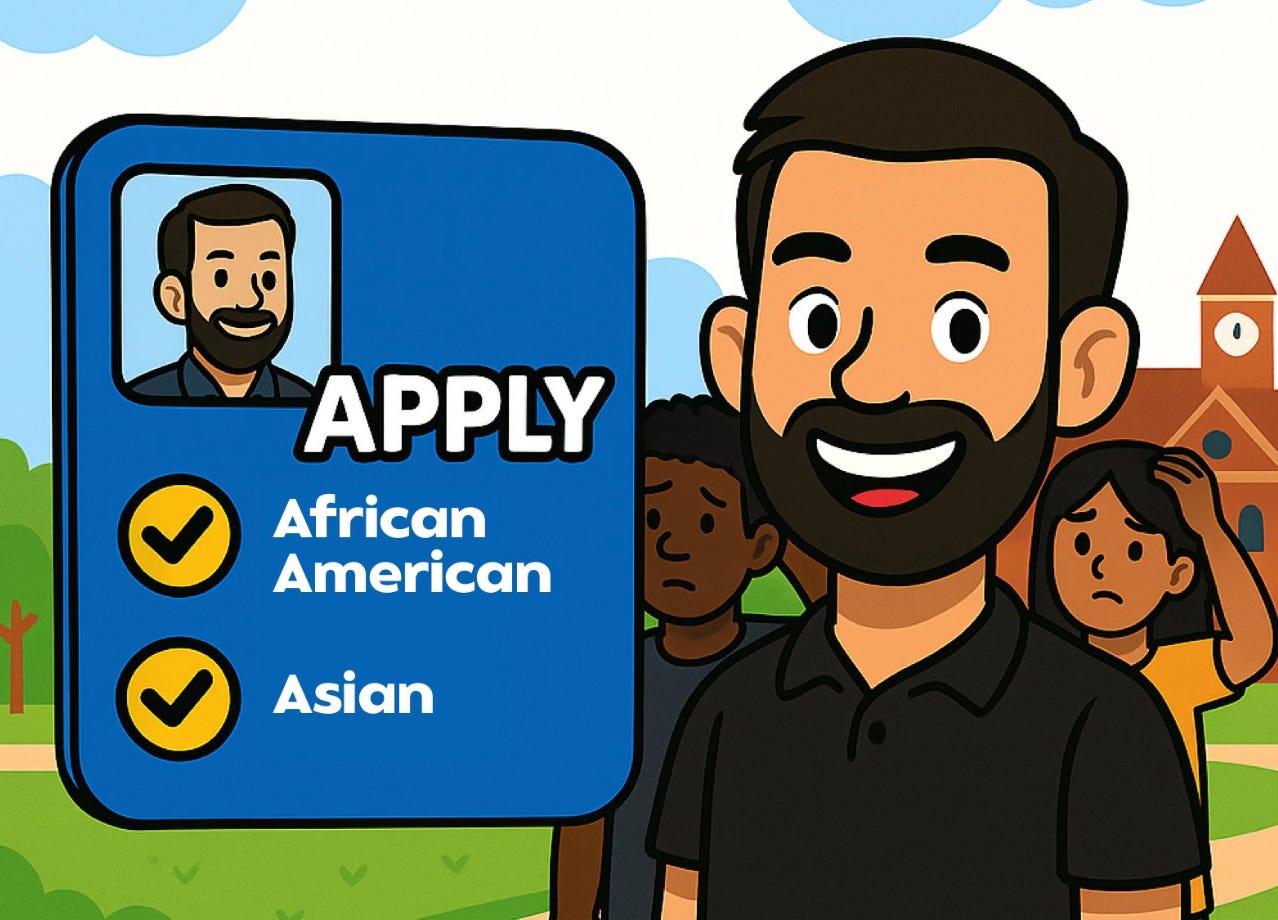Zohran Mandami Said He's African-American And I Don't Care
Yesterday, the front page of the New York Times site featured what the editors apparently thought was a shocking exposé. The winner of the Democratic primary for New York City mayor, Zohran Mandami, had claimed in college applications to be “Black or African American.” Mandami, who was born in Uganda and is of Indian descent, has struggled with Black voters. His opponent in November, current mayor Eric Adams, who is Black, leapt to accuse Mandami of racial appropriation.
“The African American identity is not a check-box of convenience,” Adams said. “For someone to exploit that for personal gain is deeply offensive.”
There have been a number of instances of racial appropriation that have gone viral in recent years. Rachel Dolezal famously became the President of the Spokane NAACP, and claimed to be a victim of hate crimes — until her parents outed her as a white kid who was born and raised in Montana. Elizabeth Hoover became a famous scholar of Native American traditions, claiming unique insight due to her Mohawk heritage. Then it turned out she had no Native heritage at all.
Mandami’s case is not nearly as egregious as those others. He was born in Africa, after all, and he apparently also listed his ethnicity as Asian to reflect his Indian descent. Yet still something about his response rang untrue to me. The box he checked asked for race/ethnicity, first of all, and not place of birth. More importantly, his claim that he only checked the box “to capture the fullness of my background” struck me as clearly false. It’s widely known that being Black can help one’s application, especially at selective universities. And Mandami’s family was one that would understand this vividly. His father was a professor at Columbia, who had written about the prejudice African Americans experienced in the United States. Mandami’s claim that he wasn’t trying to get an advantage seems silly in that context.
And yet I still don’t care. It’s not that I think there was no wrongdoing. Mandami probably did do something wrong. It’s also not that I think that wrongdoing doesn’t matter for our political leaders. Integrity is probably the characteristic we should look for more than any other in the people who will make the decisions for our community. The reason I don’t care is that everyone makes moral mistakes. And the question, ultimately, is whether any particular mistake is reflective of other decisions that a leader might make.
Mandami has not made the mistake again. The Times reviewed extensive records of Mandami’s speeches and writings; he’s never claimed Black ancestry in other contexts, unlike Dolezal or Hoover. And Mandami has shown admirable commitment to principle in other contexts, even when he’s been challenged. He has been pushed to abandon the positions he took as an activist and lesser-known politician on the invasion of Gaza. He has declined to shift, even when it probably would have served his personal interests. That is the sort of character that we should hope our leaders will demonstrate.
The “scandal” of Mandami’s appropriation many years ago is, by comparison, small potatoes. The Times has consistently shown, at least in its editorial pages, a strong bias against him. The focus on this story seems to me another example of that bias. If they are going to question his integrity in this context, however, they should laud it in so many others. I hope they do that. I hope all New Yorkers do. It’s the only way for us to find the leaders who will do the right thing, even when it’s hard.




I don’t care either, Wayne
I do care I live in NYC and don't want another lying chameleon Kamala as a leader of anything. Here is the grand irony of life here, I'm a member of political refugee family from eastern Europe who fled communist regime only to see the likes of Mandami rising to power here. We already learned the lesson in eastern european countries. Do you really would rather live in North Korea or China or Cuba Hsiung?